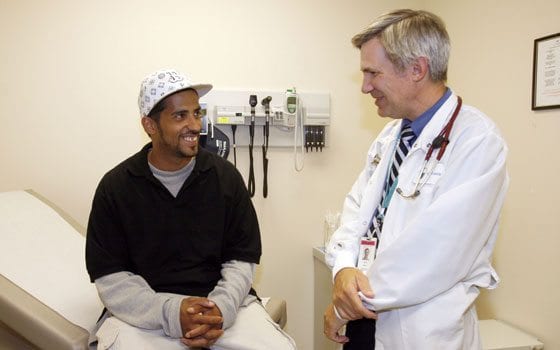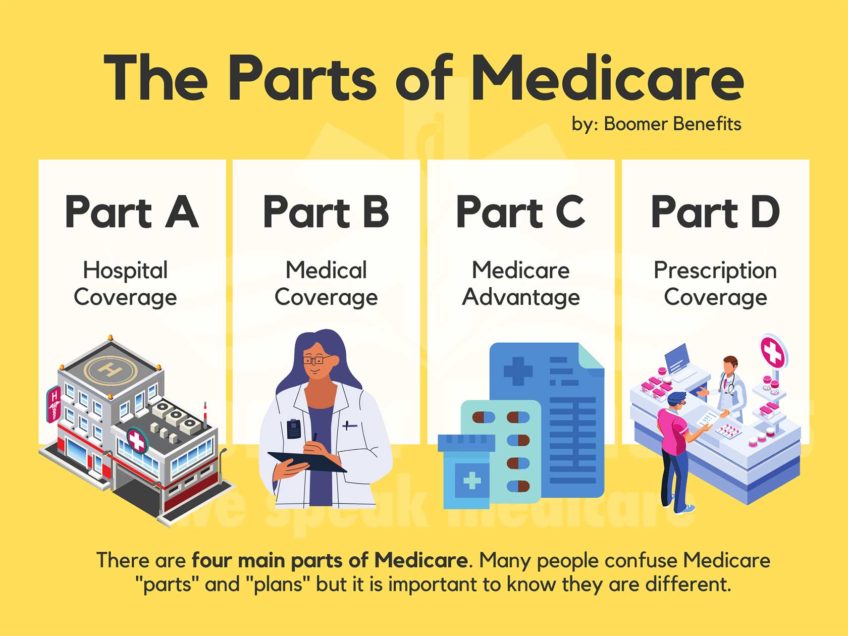

With approximately 20 percent growth in the number of patient visits each year over each of the last three years, Whittier Street Health Center is quickly expanding to meet the health care needs of the community. Contributing to this growth is targeted outreach to populations that have historically lacked access to health care. One such population is men.
Data suggest that, even with insurance, men access needed preventative health care at much lower rates than women, especially African American and Latino men. The extensive outreach efforts of Whittier Street Health Center’s Men’s Health Department has resulted in an adult patient population that is 46 percent men – one of the largest percentages of men in an urban community health center setting. Yet, with perpetuating significant disparities in health for men in our community, much more needs to be done.
Whittier is currently constructing a state of the art 79,000 square foot health center at 1290 Tremont Street, allowing for expanded opportunities to provide targeted services to men. Opening in January 2012, the new building will serve as a medical home for Roxbury and will give Whittier the capacity to provide 220,000 visits annually.
With additional space in the new building, Whittier is significantly expanding its Men’s Health capacity. Two new doctors who will champion our Men’s Health Department are set to join the Whittier family this summer. One of the new faces joining Whittier is Dr. Mothusi Chilume, a native of Botswana, South Africa. Chilume received his medical degree from St. Georges University School of Medicine in the West Indies. Currently, he is completing his residency with a concentration in HIV Medicine at Lancaster General Hospital in Pennsylvania. Chilume will join the Family Medicine team and work closely with Whittier’s HIV department to integrate HIV primary care into the clinic.
Dr. John Myers will be another new face at Whittier. A native of Massachusetts, Myers completed his medical degree at Cornell University’s Weill Cornell Medical College. He is completing his residency at Boston Medical Center on a Primary Care track. Myers will also join the Family Medicine team as an internist.
In addition to expanding staff to meet the needs of men, Whittier will also expand services. Whittier and Dana-Farber Cancer Institute are partnering to create a Community Cancer Clinic within the new building to address significant disparities in cancer outcomes and care within the Boston community. According to the Boston Public Health Commission’s 2010 Health of Boston report, in 2008, black men in Boston were 3.3 times more likely to die from prostate cancer than white men. The Community Cancer Clinic will allow for expanded services in the community to confront such disparities.
Last year, Whittier opened Project Me, a drop-in center in Dudley Square. Project Me was created as a way to reach out to people who don’t visit typical health care establishments and educate them on HIV prevention. Community PROMISE, a new program to Project Me, is an initiative that targets African American men with a history of substance abuse and uses role model stories to promote healthy behaviors and curb unhealthy lifestyles. Roxbury has one of the highest incidence rates of new HIV infections, and black and Latino residents of Boston are disproportionately affected by the disease. Through Project Me and community outreach we seek to instill healthier behaviors and improve health outcomes.
Integral to our collective efforts to improve the health of men in the community is community involvement. While annual physicals are an important component of preventative care, more important is what we do the other 364 days of the year. We need to work together to not only improve our own health behaviors, but also help each other lead healthier lives. Studies show that our social networks have a strong influence on our healthy behaviors. To truly improve health, including the health of men, it will take a collective effort from all of us and a renewed dedication to our own health and that of our friends, family and community.
To take your first step toward improved health, make an appointment at Whittier Street Health Center today by calling 617-427-1000.


![Banner [Virtual] Art Gallery](https://baystatebanner.com/wp-content/uploads/2024/04/Cagen-Luse_Men-at-store-e1713991226112-150x150.jpg)



